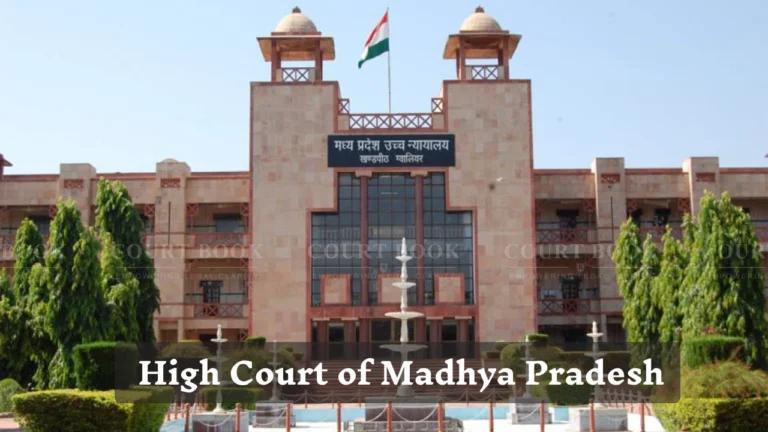The Madhya Pradesh High Court has delivered a significant judgment clarifying the applicability of the Commercial Courts Act, 2015. Justice G.S. Ahluwalia, presiding over the civil revision in Mohit Sadana v. Vijay Kumar Goyal, ruled that merely using a property for business does not qualify the matter as a commercial dispute unless the property is actually and exclusively used for trade or commerce.
The case involved a tenant, Mohit Sadana, who was operating a business from a rented shop. He claimed that the eviction suit filed by the landlord fell under the jurisdiction of the Commercial Court, citing Section 2(1)(c)(vii) of the Commercial Courts Act. This section pertains to disputes involving “agreements relating to immovable property used exclusively in trade or commerce.”
Read Also:- NEET-UG 2025 Re-Test Ordered by MP High Court for Students Hit by Power Outage in Indore & Ujjain
However, the respondent-landlord argued that the suit was based on grounds under Section 12 of the Madhya Pradesh Accommodation Control Act and was not inherently a commercial dispute. He supported his argument with precedents, including the Gujarat High Court ruling in Ujwala Raje Gaekwar v. Hemaben Achyut Shah and the Madhya Pradesh High Court decision in M/s Bhopal Fracture Hospital v. Savitri Devi Vijaywargiya.
Justice Ahluwalia emphasized that to determine whether a dispute qualifies as commercial, courts must consider Sections 2(1)(c)(vii), 2(1)(i), and 12 together. Section 2(1)(i) defines “specified value” as not less than ₹3 lakh, while Section 12 outlines how this value should be determined, particularly focusing on the market value of the immovable property.
Read Also:- Madhya Pradesh High Court Dismisses Plea Against Allegedly Misleading News Targeting Muslims
Quoting the Supreme Court’s view in Ambalal Sarabhai Enterprises Ltd. v. K.S. Infraspace LLP, the judge stated:
“If the provisions are given a liberal interpretation, the object behind the constitution of Commercial Courts—fast-tracking and speedy resolution of commercial disputes—will be defeated.”
The Court clarified that:
“The term 'used exclusively in trade or commerce' must mean 'actually used.' It cannot be interpreted as 'ready to be used' or 'likely to be used.'”
Read Also:- MP High Court Grants Bail to Lecturer Accused of Circulating Sensitive WhatsApp Content
This purposive interpretation aligns with the Act’s objective of avoiding procedural delays and maintaining the focus on genuine high-value commercial matters. It was held that in the absence of evidence showing that the property was exclusively used for trade at the time of the agreement’s execution in 2012, the dispute cannot be categorized as commercial.
Justice Ahluwalia concluded:
“Merely because the suit shop is being used for running business, the question of eviction would not become a commercial dispute.”
Consequently, the Court upheld the trial court’s dismissal of the tenant's application filed under Order 7 Rule 11 of the CPC and rejected the revision plea, affirming that civil courts do have jurisdiction in this matter.
Case Title: Mohit Sadana vs. Vijay Kumar Goyal
Civil Revision No. 169 of 2024















